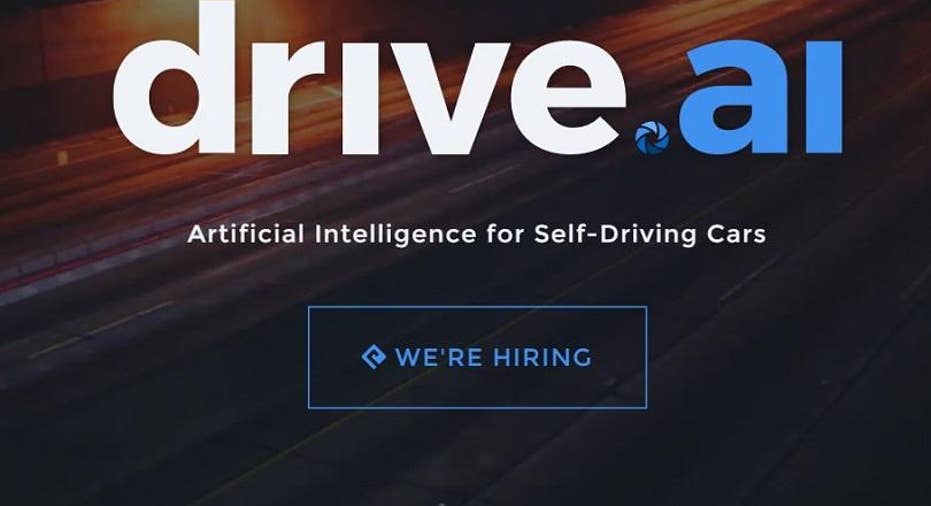This Start-Up Makes Sure Driverless Cars Don't Run You Over

Making a successful self-driving car, according to California start-up Drive.ai, is more than just about packing a vehicle full of sensors and computers—it's about teaching the car to communicate with everything around it, from stoplights to humans to other cars.
Drive.ai is making an artificial intelligence kit that it hopes will allow any car to be retrofitted with autonomous driving capabilities. The kit is a hardware and software platform comprising what you'd expect to find on a self-driving vehicle: a control system, sensors, and a human interface.
But unlike most self-driving test cars on the road today, Drive.ai's system also includes an electronic billboard strapped to the roof, a bit like a digital highway information sign. It appears intended to reassure pedestrians that the car senses their presence, using words and emoji, according to TechCrunch. When the car is stopped it a crosswalk, for instance, the sign displays a "Safe to Cross" message, to reassure pedestrians that it won't run them over.
"Vehicles of the future will communicate transparently with us, they'll have personality, and they'll make us feel welcome and safe, even without a human driver," Drive.ai co-founder Carol Reiley said in a statement.
Such a system isn't likely to find its way into private vehicles, though, for obvious aesthetic reasons. So Drive.ai is aiming its product at delivery truck fleets, ridesharing vehicles, and public transportation. The company has attracted talent from the automotive industry, including former General Motors exec Steve Girsky, and says it already has partnerships with automotive suppliers. On the engineering side, the year-old start-up boasts several alums of Stanford University's Artificial Intelligence Lab.
Like Google and several automakers, Drive.ai has a license to test its technology on public roads in California. The company did not offer a timeline for when it intends to sell its self-driving kit.
Earlier this month, Mobileye and Delphi Automotive announced they are teaming up to build an autonomous driving system that car makers can add to their vehicles as early as 2019.
This article originally appeared on PCMag.com.



















